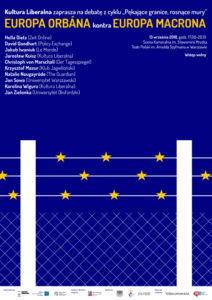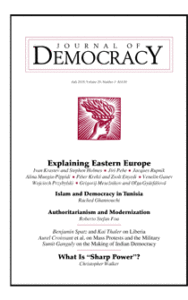 If we fail to learn from the past, we do so at our own peril. That was one of the messages from the Chinese artist-activist Ai Weiwei to a gathering of world leaders, academics and activists at the Athens Democracy Forum:
If we fail to learn from the past, we do so at our own peril. That was one of the messages from the Chinese artist-activist Ai Weiwei to a gathering of world leaders, academics and activists at the Athens Democracy Forum:
“There’s a potential to totally forget the past, and not to remember those lessons we have learned,” said Mr. Ai, who spoke in support of migrants around the globe. ….Mr. Ai, whose recent artwork has been inspired by the plight of refugees, said that all countries needed to unite and assert “global leadership” on the issue of migration, because it was “not going to stop” and might worsen because of environmental disasters, famine and population growth.
But others attributed the rise of illiberal and populist forces to the migrant surge.
 “What’s corrupting politics in Europe today is the influx of migrants,” said Kishore Mahbubani, former ambassador to the United Nations from Singapore, “and that clearly is shifting the debate in Sweden, Germany and everywhere to the far right.” Mahbubani, a professor at the National University of Singapore, suggested that Europe should consider a “strategic pause” on immigration.
“What’s corrupting politics in Europe today is the influx of migrants,” said Kishore Mahbubani, former ambassador to the United Nations from Singapore, “and that clearly is shifting the debate in Sweden, Germany and everywhere to the far right.” Mahbubani, a professor at the National University of Singapore, suggested that Europe should consider a “strategic pause” on immigration.
“That way the populations can breathe a sigh of relief,” he added, speaking at the panel, “The Allure of the Illiberal.” “Then the political debate will shift to the middle, where you want it to be.” Otherwise, “you’re going to end up with illiberal regimes because of liberal principles.”
 I think the problem that we are facing with liberal democracies is a result not of what we call the illiberal, but the failure of the liberal to understand the three big structural changes that have happened in the world, Mahbubani added:
I think the problem that we are facing with liberal democracies is a result not of what we call the illiberal, but the failure of the liberal to understand the three big structural changes that have happened in the world, Mahbubani added:
The [first] structural challenge is that we are coming to what I call the end of an artificial 200-year period of Western domination of world history. And liberalism travels on the power of its ideas, but it also travels on the back of the economic, military and political power that the West had. Now Western power is receding. So you now have got to market liberal democracy in a different way.
Since 2015, the migration crisis as well as economic dislocation have provided fuel for nationalist and Euroskeptic forces that threaten to undermine the European project. Immigration concerns played a major role in the United Kingdom’s Brexit vote, and far-right parties are on the rise in France, Germany, Italy, Sweden, and elsewhere, analyst James McBride writes for the Council on Foreign Relations:

Credit: Alchetron
[Hungary’s Viktor] Orban, touting his brand of illiberal democracy—which includes an unapologetic defense of Christian values, anti-immigration policies, and defiance of the Brussels bureaucracy—has embraced the role of Europe’s gadfly in chief. He hopes to rally to his cause like-minded allies, such as Poland’s Law and Justice Party, which the EU has also reprimanded for its controversial judicial reforms.
Karolina Wigura of the Polish think tank Kultura Liberalna placed blame for recent developments on a state of amnesia, The New York Times adds:
While previous generations in Europe had a fear of World War II, she said, “with time, this fear of the past evaporated, and there was a certain shift from the fear of the past to the fear of the future” — concerns about migrants, one’s economic well-being and job prospects.
 Does it make sense to speak of populism as a unitary item? asks Yascha Mounk, author of “The People vs. Democracy: Why Our Freedom Is in Danger and How to Save It,” and a contributor to the National Endowment for Democracy’s Journal of Democracy. I think it does, he told the Athens Democracy Forum:
Does it make sense to speak of populism as a unitary item? asks Yascha Mounk, author of “The People vs. Democracy: Why Our Freedom Is in Danger and How to Save It,” and a contributor to the National Endowment for Democracy’s Journal of Democracy. I think it does, he told the Athens Democracy Forum:
Because what they do have in common is a conception of politics in which they say the only real reason that we have problems today is because the political elite is corrupt and self-serving, and they need to be thrown out of office. But since you don’t want to admit that you’ve overpromised, you start to blame. You start to blame everything that goes wrong on the media, which are apparently fake news and need to be cowed and regulated. You start to blame it on the opposition, who supposedly are traitors. You start to blame it on independent institutions like law enforcement agencies or the courts, who supposedly are enemies of the people.







